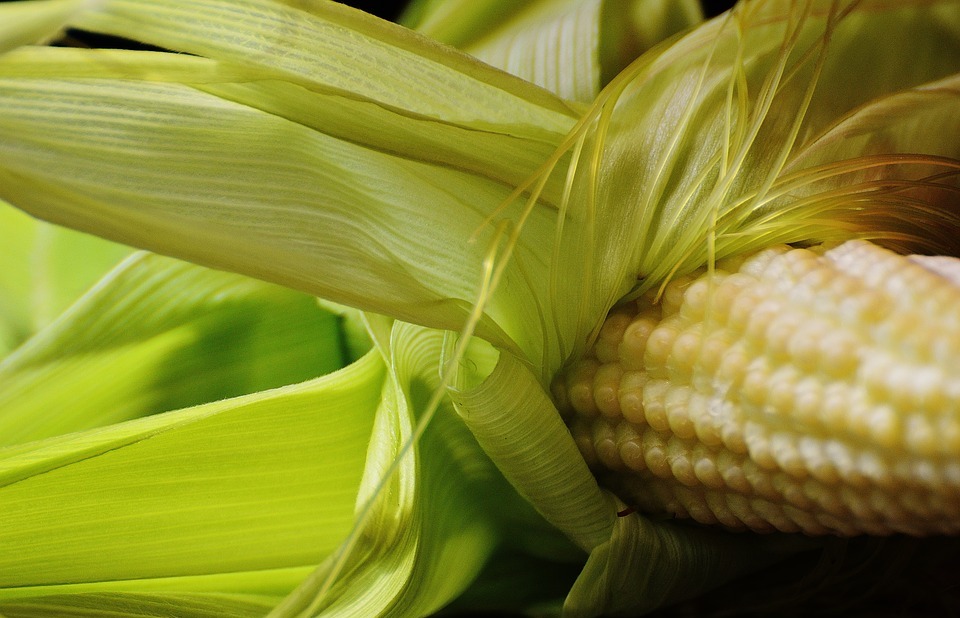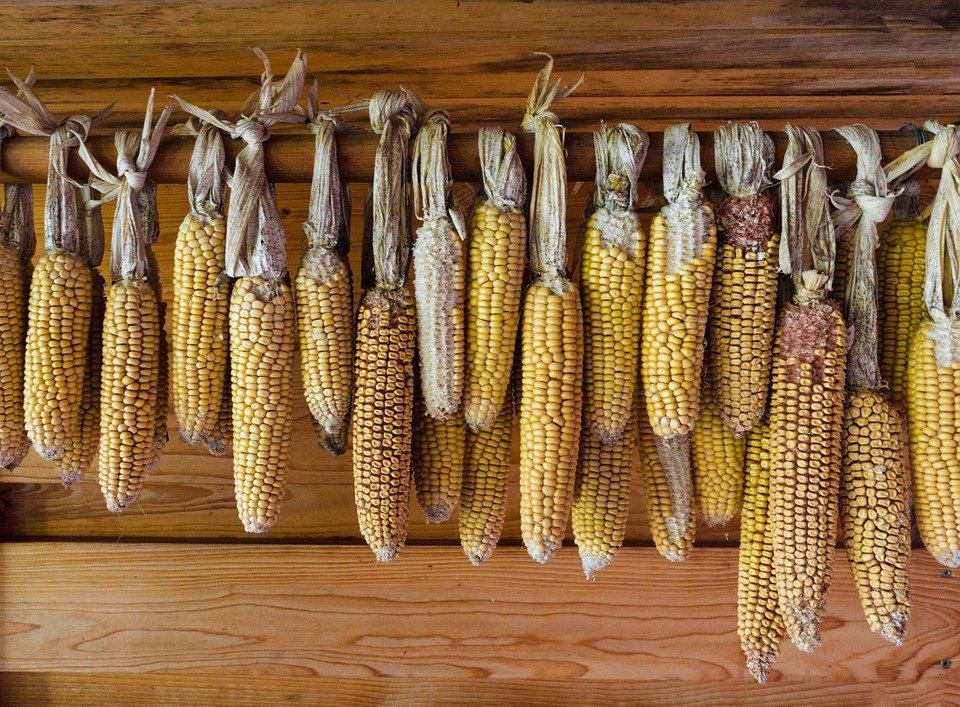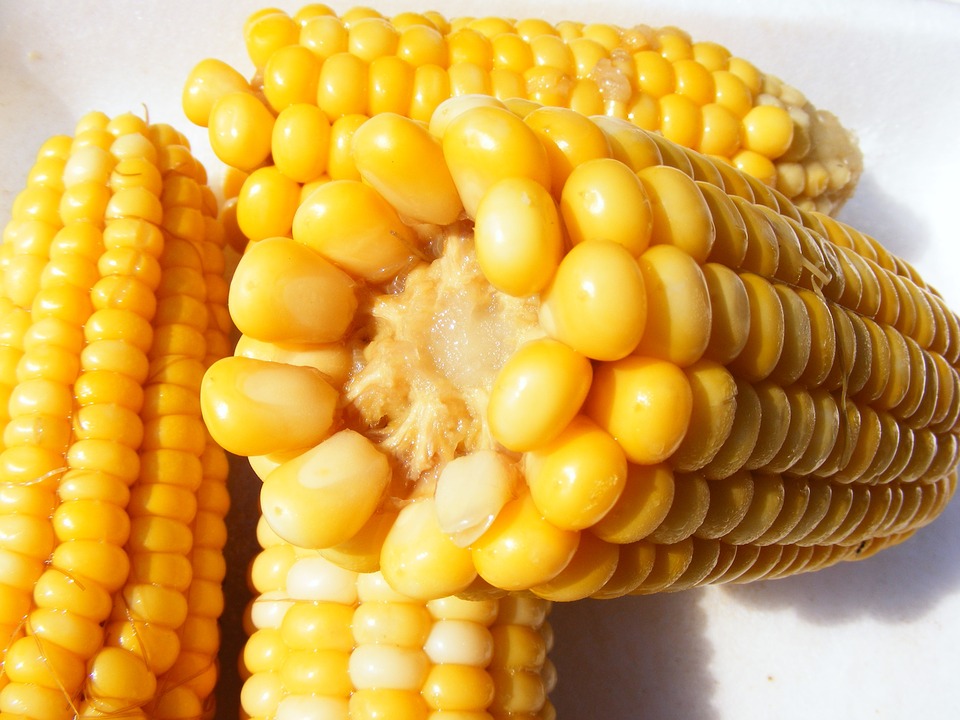This comprehensive guide provides a detailed exploration of whether cats can eat corn and how to incorporate it safely into their diets. We'll delve into the nutritional value of corn, its potential benefits and risks for cats, and discuss the different types of corn suitable for feline consumption. Additionally, we'll examine the potential downsides of corn for cats and address frequently asked questions to ensure your cat's well-being.
Part 1: Understanding Corn and its Role in Feline Nutrition

1.1 Corn: A Staple Grain in Animal Feeds
Corn, a cereal grain scientifically known as Zea mays, is a major component of many animal feeds, including cat food. Its abundance and relatively low cost make it an attractive ingredient for commercial food manufacturers.
1.2 Nutritional Breakdown of Corn
Corn offers a variety of nutrients, particularly carbohydrates, which serve as an energy source for cats. It also contains essential vitamins and minerals, including:
- Vitamin B complex: Crucial for metabolism, nerve function, and red blood cell production.
- Vitamin E: An antioxidant that safeguards cells from damage.
- Thiamin: Essential for nerve function and energy production.
- Niacin: Plays a role in energy metabolism and DNA repair.
- Magnesium: Important for muscle and nerve function.
- Phosphorus: Contributes to bone health and energy production.
1.3 Obligate Carnivores and Corn Digestion
Cats are obligate carnivores, primarily requiring animal-based protein for their survival. While they can digest some plant-based ingredients, including corn, their digestive systems are not designed to efficiently break down plant-based carbohydrates. This means that while cats can tolerate moderate amounts of corn, it should not form a significant portion of their diet.
Part 2: Can Cats Eat Corn? Exploring the Pros and Cons

2.1 Benefits of Corn for Cats
2.1.1 Energy Boost
Corn provides readily available carbohydrates that can be used as an energy source for cats. This can be especially beneficial for active cats or those with higher energy demands.
2.1.2 Source of Essential Nutrients
As mentioned earlier, corn contains essential vitamins and minerals that contribute to overall cat health. The vitamin B complex is crucial for various metabolic processes, while vitamin E acts as an antioxidant, protecting cells from damage.
2.1.3 Cost-Effectiveness
Corn is a relatively inexpensive ingredient commonly used in commercial cat foods, making it a cost-effective option for many pet owners.
2.2 Potential Risks of Corn for Cats
2.2.1 Allergies
Although uncommon, some cats can develop allergies to corn. Signs of a corn allergy can include digestive upset, skin irritation, and respiratory issues.
2.2.2 Weight Gain
Excess corn in a cat's diet can lead to weight gain. This is because the carbohydrates in corn are easily converted into energy and, if not used, are stored as fat.
2.2.3 Digestive Issues
Excessive consumption of corn can cause digestive upset in some cats due to their limited ability to break down plant-based carbohydrates. This may manifest as diarrhoea, gas, or constipation.
2.2.4 Nutrient Imbalances
Relying heavily on corn in a cat's diet can result in nutrient imbalances. Corn is not a complete source of all essential nutrients for cats, and its inclusion in a diet should be carefully considered to ensure that cats receive necessary nutrients from other sources.
Part 3: Exploring Different Types of Corn for Cats

3.1 Cooked Corn: A Safer Choice
Cooked corn, either boiled or steamed, is generally considered safe for cats in moderation. Cooking corn makes it easier for cats to digest and reduces the risk of digestive upset.
3.2 Cornmeal: A Potential Ingredient in Cat Food Recipes
Cornmeal, a finely ground corn product, can be used in homemade cat food recipes. However, it's important to use it sparingly and ensure that it is of high quality, free from additives or preservatives.
3.3 Cornstarch: A Thickening Agent
Cornstarch, a refined starch extracted from corn, is sometimes used as a thickening agent in commercial cat food. It's generally safe for cats in small quantities.
Part 4: Safe Ways to Introduce Corn to Your Cat's Diet
4.1 Moderation is Key
Feeding corn to cats should always be done in moderation. The appropriate amount will depend on your cat's age, size, activity level, and overall health.
4.2 Gradual Introduction
When introducing any new food, including corn, to your cat, do so gradually. Start with small amounts and monitor for any adverse reactions.
4.3 High-Quality Corn is Crucial
If you choose to use corn in homemade cat food recipes, opt for high-quality corn that is free from pesticides and other harmful contaminants.
4.4 Consult Your Veterinarian
Before making any significant changes to your cat's diet, including the addition of corn, it's crucial to consult with your veterinarian. They can provide personalized advice based on your cat's individual needs and health status.
Part 5: Corn and Commercial Cat Food: Understanding Ingredients
5.1 Corn in Commercial Cat Food
Corn is a common ingredient in many commercial cat foods, often listed as a source of carbohydrates. However, the quality and type of corn used in different brands can vary significantly.
5.2 Deciphering the Ingredient List
When choosing commercial cat food, carefully review the ingredient list. Look for high-quality ingredients, including meat-based protein sources and limited corn content.
5.3 Choosing a Suitable Cat Food
If you're concerned about corn in your cat's diet, consider opting for cat food brands that feature alternative carbohydrate sources, such as brown rice, oats, or sweet potatoes.
Part 6: Specific Types of Corn to Avoid
6.1 Popcorn
While plain, unbuttered popcorn is generally safe for cats in small quantities, it's best to avoid feeding them popcorn kernels. These can be difficult for cats to digest and pose a choking hazard.
6.2 Sweet Corn
Sweet corn, while not toxic, should be avoided as it contains high levels of sugar, which can be harmful to cats.
6.3 Corn on the Cob
Corn on the cob should not be given to cats as it presents a choking hazard and can cause digestive issues.
6.4 Canned Corn
Canned corn, especially those with added salt, sugar, or preservatives, should be avoided as these ingredients can be harmful to cats.
Part 7: Understanding Corn Gluten Meal
7.1 What is Corn Gluten Meal?
Corn gluten meal is a byproduct of corn processing. It's a high-protein source, but it's typically considered a low-quality protein source for cats.
7.2 Potential Downsides of Corn Gluten Meal
Corn gluten meal can be difficult for cats to digest and may not provide the same nutritional value as other protein sources. It's also often used in low-quality cat foods, and its inclusion in a diet should be carefully considered.
Part 8: Frequently Asked Questions
8.1 Can Cats Eat Corn Regularly?
While cats can tolerate corn in moderation, it should not be a staple food. It's best to provide corn as an occasional treat and ensure a balanced diet with other protein sources.
8.2 What Are Some Alternatives to Corn in Cat Food?
There are many other suitable ingredients for cat food, including meat, poultry, fish, eggs, and other grains like brown rice, oats, and sweet potatoes.
8.3 Should I Be Worried if My Cat Eats Corn?
If your cat accidentally consumes a small amount of corn, there's no need to panic. However, it's best to avoid feeding them corn regularly and ensure they receive a balanced diet.
8.4 How Can I Tell if My Cat is Allergic to Corn?
Signs of a corn allergy can include digestive upset, skin irritation, and respiratory issues. If you suspect your cat is allergic to corn, consult your veterinarian.
8.5 How Much Corn is Safe for My Cat?
The amount of corn that is safe for your cat will vary depending on their age, size, activity level, and overall health. It's best to consult with your veterinarian to determine the appropriate amount for your individual cat.
8.6 What Are Some Signs of Digestive Issues Due to Corn?
Common signs of digestive issues related to corn consumption include diarrhoea, gas, and constipation. If you notice these symptoms in your cat, consult your veterinarian.
8.7 Can Corn Be Harmful to Kittens?
Kittens, due to their developing digestive systems, may be more sensitive to corn. It's best to avoid feeding corn to kittens and focus on a diet rich in high-quality protein sources.
This guide provides a comprehensive overview of corn and its potential role in your cat's diet. Remember, always prioritize a balanced diet, and consult with your veterinarian for personalized advice on your cat's nutritional needs.
Everyone is watching
-

Are Cat Ribs Flexible? Understanding Their Anatomy
CATS & KITTENSThis article delves into the fascinating world of feline anatomy, exploring the flexibility of cat ribs and ho...
-

Can Cats Eat Bananas? (Everything You Need to Know)
CATS & KITTENSThis article dives into the intriguing question of whether cats can safely enjoy the sweet, yellow fruit, bana...
-

Cat Lifespan: How Long Do Cats Live?
CATS & KITTENSThis comprehensive guide explores the factors influencing the lifespan of our feline companions, providing ins...
-

Can Cats Get COVID-19? What You Need to Know
CATS & KITTENSThis article will delve into the fascinating world of feline COVID-19 susceptibility. We'll explore whether ca...
-

Can Cats Eat Eggs? A Complete Guide to Egg Safety for Your Feline Friend
CATS & KITTENSWhen it comes to treating our furry companions, we all want to ensure we're doing what's best for them. Eggs...
